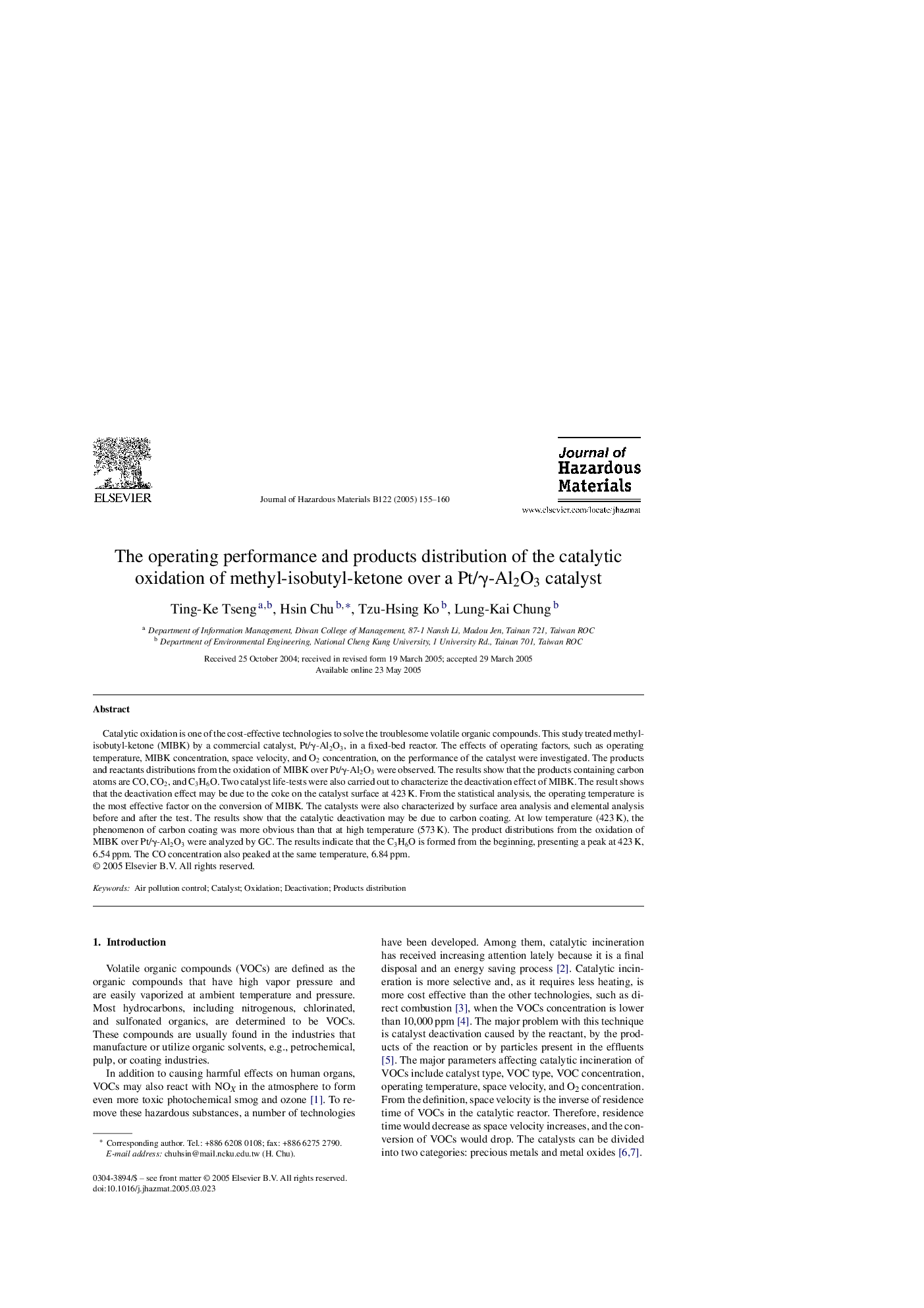| Article ID | Journal | Published Year | Pages | File Type |
|---|---|---|---|---|
| 9674248 | Journal of Hazardous Materials | 2005 | 6 Pages |
Abstract
Catalytic oxidation is one of the cost-effective technologies to solve the troublesome volatile organic compounds. This study treated methyl-isobutyl-ketone (MIBK) by a commercial catalyst, Pt/γ-Al2O3, in a fixed-bed reactor. The effects of operating factors, such as operating temperature, MIBK concentration, space velocity, and O2 concentration, on the performance of the catalyst were investigated. The products and reactants distributions from the oxidation of MIBK over Pt/γ-Al2O3 were observed. The results show that the products containing carbon atoms are CO, CO2, and C3H6O. Two catalyst life-tests were also carried out to characterize the deactivation effect of MIBK. The result shows that the deactivation effect may be due to the coke on the catalyst surface at 423 K. From the statistical analysis, the operating temperature is the most effective factor on the conversion of MIBK. The catalysts were also characterized by surface area analysis and elemental analysis before and after the test. The results show that the catalytic deactivation may be due to carbon coating. At low temperature (423 K), the phenomenon of carbon coating was more obvious than that at high temperature (573 K). The product distributions from the oxidation of MIBK over Pt/γ-Al2O3 were analyzed by GC. The results indicate that the C3H6O is formed from the beginning, presenting a peak at 423 K, 6.54 ppm. The CO concentration also peaked at the same temperature, 6.84 ppm.
Related Topics
Physical Sciences and Engineering
Chemical Engineering
Chemical Health and Safety
Authors
Ting-Ke Tseng, Hsin Chu, Tzu-Hsing Ko, Lung-Kai Chung,
